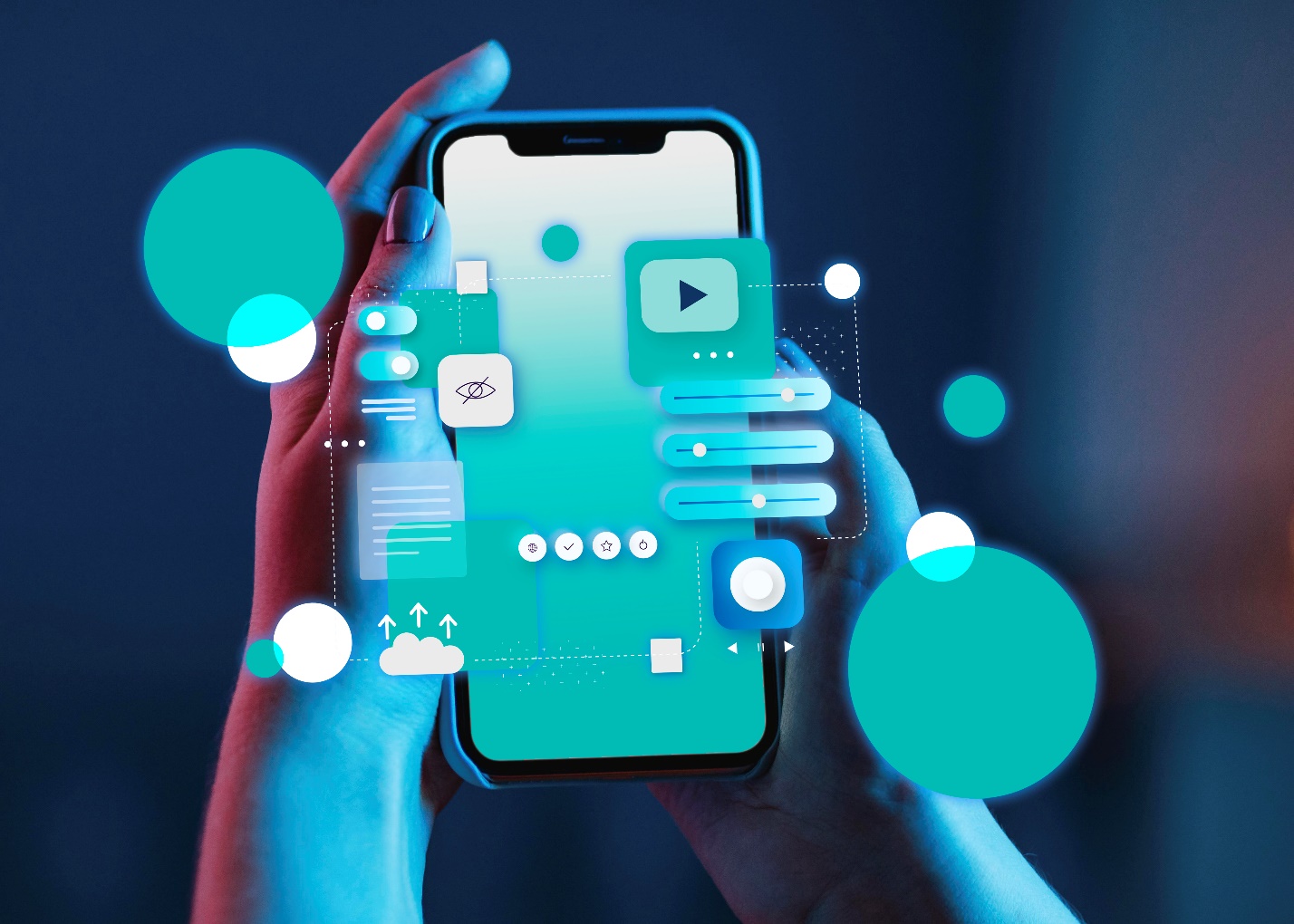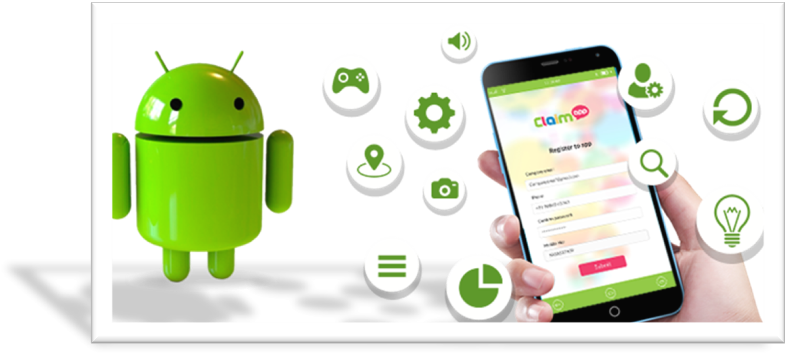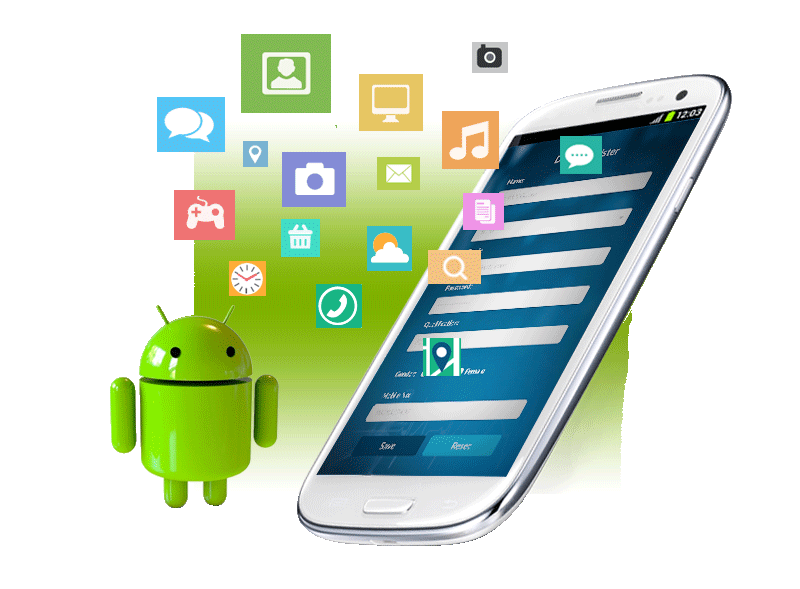Creative Android app
Creative Android app design is an exciting journey into a world of new possibilities, tackled by a creative and specialized engineer. In this article, we invite you on a journey into the realm of Android app design, where we will explore the principles, techniques, and new challenges in creating successful apps. From basic concepts to advanced tips, we will introduce you to how to build a powerful and unique app. Please note that in the modern world, having a successful app can pave the way for the growth and development of your business. So, if you have an online business and are looking to create an efficient and successful Android app, take advantage of the free consultation from Tenetup and meet your business needs.
Why Online Businesses Need Apps?
Online businesses need app design for various reasons. Below are some of these reasons:
- Mobile Presence Importance: With the increasing use of mobile devices such as smartphones and tablets, the importance of mobile presence for online businesses has grown. Apps allow businesses to be directly and independently accessible to their customers, providing a better user experience.
- Enhanced User Experience: Apps offer a better and more customized user experience. Users can easily access services and products from businesses without the need to open web browsers.
- Direct Customer Engagement: Apps enable businesses to engage directly with their customers through notifications, emails, instant messages, and other features.
- Greater Flexibility: Apps provide businesses with the flexibility to offer new services and features easily by adding them to the existing app. This allows businesses to stay in line with changing customer needs and preferences.
- Market Competition: In many industries, having an app is considered a crucial competitive advantage. Without an app, a business may risk losing customers to competitors.

Different type of application
There are different types of applications, and these types vary in terms of the technical and technological aspects used in their development. The three main types of applications that you mentioned are:
-
HTML5 Apps: These apps are developed using web technologies such as HTML5, CSS, and JavaScript. They run online in web browsers and do not require installation from app stores. They are usually used to access online information and services.
-
Native Apps: These apps are fully installed on mobile devices and leverage the hardware and software resources of the device. Various programming languages like Java (for Android) and Swift or Objective-C (for iOS) are used to develop these apps. Native apps are considered permanent applications and are available to users once they are installed on their devices.
-
Hybrid Apps: Hybrid apps are a combination of web and native technologies. They are developed using a multi-purpose framework and can run on multiple platforms (such as Android and iOS) simultaneously. Frameworks like Cordova (formerly PhoneGap) and React Native are popular choices for developing hybrid apps.
Businesses in various industries use different types of apps based on their needs. Examples of the types of apps suitable for various businesses include:
Restaurants and Cafes:
- Local App: Provides customers with the ability to order food online and make payments.
- Hybrid App: Uses web features to display daily menus, special offers, and restaurant information.
E-commerce:
- Local App: Allows users to shop online, create accounts, and make secure payments.
- Hybrid App: Uses web pages to display products and shopping carts.
Insurance and Financial Services:
- Local App: Provides customers who need to manage bank accounts and conduct financial transactions.
- Hybrid App: Uses the web to provide financial information and advice.
Educational Businesses:
- Local App: Provides students with access to online courses and exams.
- Hybrid App: Uses web features to deliver educational content and exercises.
Tourism and Hospitality:
- Local App: Used for hotel reservations, flight tickets, and tourist attraction information.
- Hybrid App: Utilizes tourist tour information and videos.
These are just a few examples of different businesses that can benefit from apps to enhance the user experience of their customers and increase their online activities. The choice of app type depends on the target audience, business needs, and financial resources.

principles of Android app design
The principles of Android app design are crucial for creating a user-friendly and efficient application. Here are some key principles to consider:
-
Clearly State the App's Purpose and Functionality: It's essential to convey what your app does and how it works right from the start. Use a clear and concise statement or example to illustrate the app's primary purpose. For example, Lookout, a security app, clearly communicates its purpose and provides four main actions on its initial screen.
-
Optimize App Loading Speed: Users expect apps to load quickly, and slow-loading apps can deter users. With improving internet speeds, users want instant results. To ensure your app remains on users' devices, focus on reducing loading times.
-
Simplify User Registration: Avoid requiring users to provide personal information immediately upon opening the app, as this can be off-putting. Users often download apps to browse, shop, reserve, or find information. Address their initial needs before asking for personal information. Let users explore your app, experience it, and then gently encourage them to register.
-
Ensure Consistency with Web UI: If you have a website and are launching a mobile app, make sure that the app's user interface (UI) is consistent with your website. Users should feel familiar with the app's design and navigation if they've previously interacted with your website.
-
Make Navigation Easy: Users should be able to easily navigate your app and understand how to go back. Ensure there's a clear and accessible way to return to the previous screen or the home screen. Consistent and intuitive navigation enhances the user experience.
Remember that a well-designed Android app is not only visually appealing but also functional, efficient, and user-friendly. By following these principles and best practices, you can create an effective and engaging app for your business or project.

In Conclusion,
Tenetup, with its extensive experience in app design and years of expertise in website design, SEO, and site optimization, is recognized as a leader in this industry. Our team's unparalleled specialization and experience in Android app design make us stand out. We empower you to turn your ideas and designs into reality in the digital world. Whether you're looking for mobile app design in Tehran, Karaj, or anywhere worldwide, contact our consultants at Tenetup or visit our website to get more information about our rates and services. We're here to assist you in creating a unique and successful app.
With Tenetup, what you envision for your future begins today!


